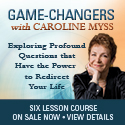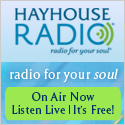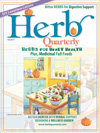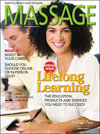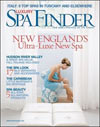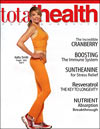, but we are getting lots of comments. Let's see what our readers have had to say so far:
Hi: As your list grows, it would be helpful to separate what Reiki is from
what Reiki isn't. Reiki can help reduce stress is a very weakly written
"advertising" claim and to me confusing. People believe Meditation can help
reduce stress, so this claim doesn't make Reiki seem very wonderful to me. Do you have or know of any legitimate medical evidence of studies pre/post Reiki
treatments with physical or emotional measures of stress changed? Or is
this only anecdotal and testimonial in nature. that people say they feel
better?
As a Master, I don't doubt the power of Reiki. The reason I ask
is that strong evidence can make for a stronger, truer claim of what Reiki
is. And the statement about stress is critical because many believe 75% of
all illness beginswith stress. Perhaps a definition of stress can help
improve the strength of the claim.
In the meantime, I also like something about the following new statements regarding healing. I guess the comments are difficult to grasp because in a way, we are describing the unseen.
1. Reiki removes energy blockages which promote stress and disease.
2. Reiki promotes the free-flow of "chi" or universal life energy, increasing the
individual's ability to heal themselves naturally.
3. Reiki complements and enhances traditional healing therapies.
I enjoy your column. Keep at it.
Best,
CeCe Inwentarz
***
Hi, I've recently started to receive the Reiki Digest newsletter and am really enjoying it. I've been Reiki since 1987 and a teacher since 1990. I love the idea of a list of points of consensus. I would like to suggest one: No intuitive or psychic abilities are needed to be able to do Reiki.
Blessings,
Arline Rowden, Reiki Master Teacher
***
Hi, here is a humble contribution to the debate on three of the issues: Whilst the statement “17. Reiki is practiced by people of all faiths, as well as agnostics and atheists” may be correct, it is not possible to verify that practitioners of all (every) religion practice Reiki. It may be safer to refer to members of the principal religions (although not all denominations of the major religions or faiths).I especially do not think one can say: “16. Reiki is compatible with all religions” for the simple reason that it is for the adherents of religions to decide the criteria on which that matter needs to be decided and it is simply not practicable to do that even if it were logistically possible, which I suggest it is not. Further (and much more straightforwardly), there is indeed evidence that members of some religions assert strongly that Reiki is antithetical to doctrines they hold to. So that claim is I believe not possible to fairly make.
I will though add a couple of practical examples that may help make my point from a slightly different perspective:
(1) I eat all kinds of meat (although much of family are vegetarians and not all of the same beliefs on religious issues). I believe it is compatible for me and they to eat meat of all kinds - from both a religious and moral point of view. My kids happen not agree with me or at least have for themselves made a choice not to eat meat (even though some of us happen, in fact, to share practice of Reiki… and we share many otherwise “moral” values).
(2) More widely, on religious grounds, I feel it is fine to eat pork but Jewish and Muslim friends do not. Just because I think it is OK to eat pork I cannot enforce that viewpoint upon those who do not accept that. Me saying it is OK does not make it OK for them! Likewise, whilst as a practicing Christian I accept Reiki, that does not mean I can enforce that belief on others who may have different beliefs than me, whether Christian or otherwise. I would in fact object most strongly to being told by an atheist, agnostic or Buddhist (or even someone who feels to be a Christian) that Reiki is compatible with my religion, even if I believed that myself; that is a matter for me to decide. It would of course be OK, and indeed rather nice, if we could agree that Reiki (in the way we each practice it) is OK!
On the issue of whether, “14. Reiki has never been known to harm anyone…" There is in fact some difficulty in determining whether one is receiving Reiki, albeit “packaged” as such. I know of a couple of cases where people have felt “attuned” to something (said to be Reiki) that they felt was harmful to them and they sought to be “un-attuned”.
Some practitioners are into all kinds of add-ons which could not be said to have anything to do with Reiki (at least how it was originally practiced by its founder or even ‘conventionally’ by most practitioner standards or the major schools). Whilst I know of no harm that could be done by what I would consider Authentic Reiki, the determination of what a person actually receives might be a different thing… When one can (online) and without any questions become supposedly attuned as a Reiki Master for free, without having prepared or even knowing the slightest thing about Reiki - can anything be considered wholly safe from harm?
I hope this is helpful…
Mike Oram Lineone
***
Hello, My name is Jeanne and I have been a Reiki practitioner for 3 plus years, a Reiki master for one. I have to say I strongly disagree with number 18 this week (18. Neither practitioner nor recipient need believe anything about Reiki in order for it to work.) I think it is important to note that you need faith and/or believe in something for it to have any positive effect on you/ your healing. I attribute this to people who hear they have cancer and view it as a death wish versus others who have cancer and fight their damnedest to beat it. I think it is especially important for the practitioner to believe in Reiki. What kind of message are we sending the world otherwise? Here is the great healing modality but we don't even believe in it, but we practice it. There has to be some degree of a positive view on Reiki for it to have any kind of lasting impression on the practitioner and the recipient.
Kind Regards,
Jeanne Tedesco, Certified Reiki Master
***
I have a question about one of the proposed points of consensus,"Reiki has no contraindications". I have read many, many places that we should nottreat an accident victim if we believe there might be broken bones, due tothe effect that Reiki healing might have in mending the bones before theyare set. This might mean that the bones would have to be re-broken in orderto set them properly. Is this a myth?
I also have read that when using Reiki with diabetics, it can change theirblood sugar levels and must be very carefully monitored.
When I read that Reiki has no contraindications, it seems as though Reiki can be used in any circumstances without any concerns. As a newer Reiki practitioner, it would be important to know if these situations (or anyothers) require special consideration.
Thanks for your efforts,
Linda Smulka
***
16. Reiki is compatible with all religions.
Where is your evidence for this claim? Even covering all major religions seems difficult.
Posted by Chris @ Martial Development to The Reiki Digest at 6:42 PM
***
Here is a comment made by one of my students regarding the list about Reiki you are putting together for the Reiki Digest. Arline Rowden is my teacher and she sent me the info.
Reiki can foster personal insights for both the practitioner and the client, and it can to heighten intuitive and/or spiritual sensitivities in both practitioner and client. I don't know if these fit into your list or not, but they seem to occur regularly in my practice. Thanks for sharing this. Jo M.
Regards,
Patty Penner, Reiki Master Teacher
***
Hello
Thanks so much for putting together these suggestions.
The two that I would add are
Reiki is effective being sent from a distance.
Reiki works for many aspects of life including relationships, health, sleep, pain relief, right livelihood, guidance, and prosperity.
Feel free to modify the above as you see fit and as fits best with your experience.
Blessings
Caley I. Powell
***
I'll post my replies to these comments later this week. Meanwhile, let the discussion continue. Add your comments to this post on our web site (just click on the word "comments" at the end of the post) or email them to editor@thereikidigest.com.
Many thanks to everyone who has contributed to the discussion so far.















